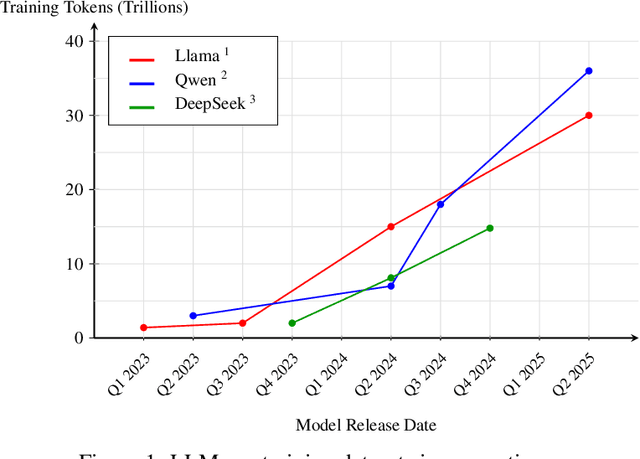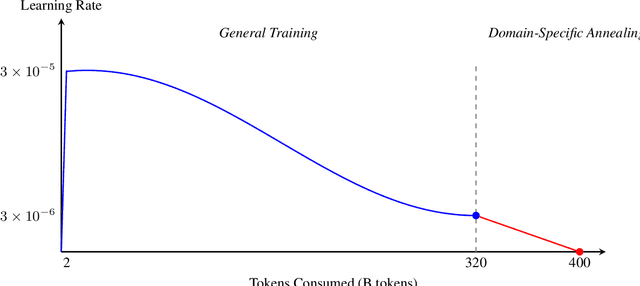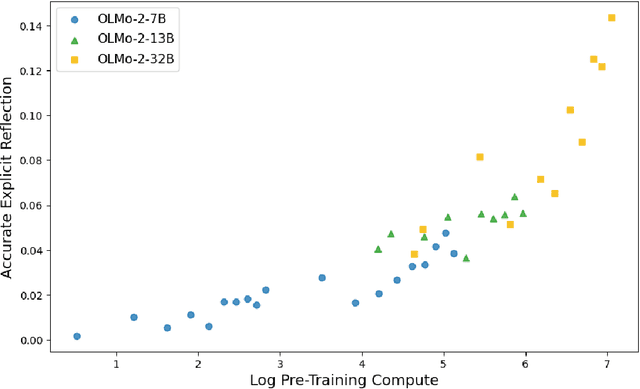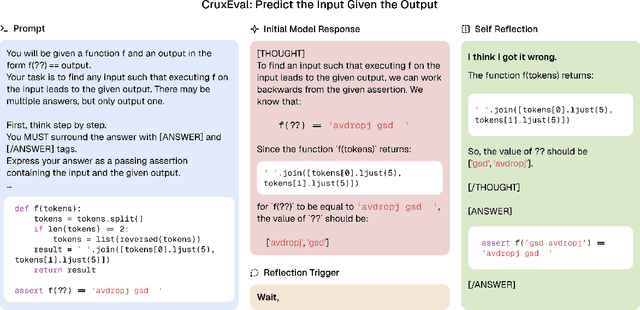Ritvik Kapila
Essential-Web v1.0: 24T tokens of organized web data
Jun 17, 2025



Abstract:Data plays the most prominent role in how language models acquire skills and knowledge. The lack of massive, well-organized pre-training datasets results in costly and inaccessible data pipelines. We present Essential-Web v1.0, a 24-trillion-token dataset in which every document is annotated with a twelve-category taxonomy covering topic, format, content complexity, and quality. Taxonomy labels are produced by EAI-Distill-0.5b, a fine-tuned 0.5b-parameter model that achieves an annotator agreement within 3% of Qwen2.5-32B-Instruct. With nothing more than SQL-style filters, we obtain competitive web-curated datasets in math (-8.0% relative to SOTA), web code (+14.3%), STEM (+24.5%) and medical (+8.6%). Essential-Web v1.0 is available on HuggingFace: https://huggingface.co/datasets/EssentialAI/essential-web-v1.0
Practical Efficiency of Muon for Pretraining
May 04, 2025Abstract:We demonstrate that Muon, the simplest instantiation of a second-order optimizer, explicitly expands the Pareto frontier over AdamW on the compute-time tradeoff. We find that Muon is more effective than AdamW in retaining data efficiency at large batch sizes, far beyond the so-called critical batch size, while remaining computationally efficient, thus enabling more economical training. We study the combination of Muon and the maximal update parameterization (muP) for efficient hyperparameter transfer and present a simple telescoping algorithm that accounts for all sources of error in muP while introducing only a modest overhead in resources. We validate our findings through extensive experiments with model sizes up to four billion parameters and ablations on the data distribution and architecture.
Rethinking Reflection in Pre-Training
Apr 05, 2025



Abstract:A language model's ability to reflect on its own reasoning provides a key advantage for solving complex problems. While most recent research has focused on how this ability develops during reinforcement learning, we show that it actually begins to emerge much earlier - during the model's pre-training. To study this, we introduce deliberate errors into chains-of-thought and test whether the model can still arrive at the correct answer by recognizing and correcting these mistakes. By tracking performance across different stages of pre-training, we observe that this self-correcting ability appears early and improves steadily over time. For instance, an OLMo2-7B model pre-trained on 4 trillion tokens displays self-correction on our six self-reflection tasks.
CoDream: Exchanging dreams instead of models for federated aggregation with heterogeneous models
Feb 27, 2024Abstract:Federated Learning (FL) enables collaborative optimization of machine learning models across decentralized data by aggregating model parameters. Our approach extends this concept by aggregating "knowledge" derived from models, instead of model parameters. We present a novel framework called CoDream, where clients collaboratively optimize randomly initialized data using federated optimization in the input data space, similar to how randomly initialized model parameters are optimized in FL. Our key insight is that jointly optimizing this data can effectively capture the properties of the global data distribution. Sharing knowledge in data space offers numerous benefits: (1) model-agnostic collaborative learning, i.e., different clients can have different model architectures; (2) communication that is independent of the model size, eliminating scalability concerns with model parameters; (3) compatibility with secure aggregation, thus preserving the privacy benefits of federated learning; (4) allowing of adaptive optimization of knowledge shared for personalized learning. We empirically validate CoDream on standard FL tasks, demonstrating competitive performance despite not sharing model parameters. Our code: https://mitmedialab.github.io/codream.github.io/
First 100 days of pandemic; an interplay of pharmaceutical, behavioral and digital interventions -- A study using agent based modeling
Jan 09, 2024



Abstract:Pandemics, notably the recent COVID-19 outbreak, have impacted both public health and the global economy. A profound understanding of disease progression and efficient response strategies is thus needed to prepare for potential future outbreaks. In this paper, we emphasize the potential of Agent-Based Models (ABM) in capturing complex infection dynamics and understanding the impact of interventions. We simulate realistic pharmaceutical, behavioral, and digital interventions that mirror challenges in real-world policy adoption and suggest a holistic combination of these interventions for pandemic response. Using these simulations, we study the trends of emergent behavior on a large-scale population based on real-world socio-demographic and geo-census data from Kings County in Washington. Our analysis reveals the pivotal role of the initial 100 days in dictating a pandemic's course, emphasizing the importance of quick decision-making and efficient policy development. Further, we highlight that investing in behavioral and digital interventions can reduce the burden on pharmaceutical interventions by reducing the total number of infections and hospitalizations, and by delaying the pandemic's peak. We also infer that allocating the same amount of dollars towards extensive testing with contact tracing and self-quarantine offers greater cost efficiency compared to spending the entire budget on vaccinations.
Domain Generalization In Robust Invariant Representation
Apr 07, 2023Abstract:Unsupervised approaches for learning representations invariant to common transformations are used quite often for object recognition. Learning invariances makes models more robust and practical to use in real-world scenarios. Since data transformations that do not change the intrinsic properties of the object cause the majority of the complexity in recognition tasks, models that are invariant to these transformations help reduce the amount of training data required. This further increases the model's efficiency and simplifies training. In this paper, we investigate the generalization of invariant representations on out-of-distribution data and try to answer the question: Do model representations invariant to some transformations in a particular seen domain also remain invariant in previously unseen domains? Through extensive experiments, we demonstrate that the invariant model learns unstructured latent representations that are robust to distribution shifts, thus making invariance a desirable property for training in resource-constrained settings.
 Add to Chrome
Add to Chrome Add to Firefox
Add to Firefox Add to Edge
Add to Edge